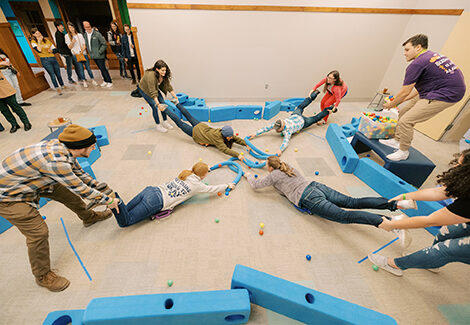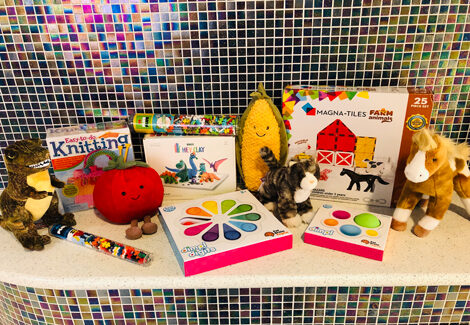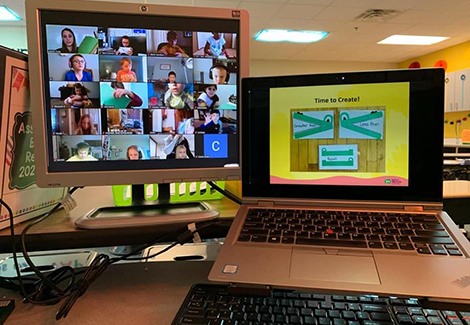As technology gives way to newer and greater forms of entertainment media, at the forefront of our minds should be how these advances affect the mind and body of those most vulnerable in our society: children. The American Academy of Pediatrics’ screen time guidelines, updated at the end of 2016, suggest that children under the age of 18 months should have no screen time, children ages 2 to 5 should be limited to 1 hour a day, and children 6 and older should have limited digital media with limits set by their parents. Limiting screen time isn’t always an easy task, below are some tips that will help your family maintain healthy screen time habits.
- Establish “screen-free” zones: Find at least one room in the house, such as the bedroom, where media is off-limits. Instead set up a play space to support things your child is interested in such as a dress-up area or a book nook.
- Create a shared family space: Fill the space with books, magazines, newspapers, etc. to promote literacy skills as well as a place to relax.
- Unplug as a family one night a week: Use this time to have a game night, go on an outing or to share about your lives.
- Turn off the TV if no one is watching: Having the TV on if no one is watching can still be a distraction due to noise. It is also more of a temptation to start watching. Plus! Turning off a TV that is not being watched will save energy.
After limiting screen time, you may be wondering about how to keep your family engaged in play. Below are just a few ideas for ways to keep your family entertained and unplugged.
- Choose toys for your children that allow them to create their own fun: Items such as building blocks, craft supplies, and dress-up props encourage children to think, problem-solve and explore questions. These toys also help nurture a child’s creativity and imagination.
- Take advantage of your child’s “me too” attitude: Young children are eager to lend a hand and naturally mimic things they see their parents do such as: cooking, gardening, art, reading or sports. You can use your child’s tendency to mimic to introduce them to new hobbies. This same principle can be applied when you have a lot of chores to do. Instead of turning to a tablet or a TV to keep the child occupied while you get things done around the house, turn chores into a game by singing songs, adding time challenges or working as a team with siblings.
- Get outside and play!: Dance in the rain, catch snowflakes on your tongue, jump into a pile of leaves. Don’t let the weather deter you from getting outdoors. Dress for the weather and embrace what the seasons have to offer. If getting outside is not possible for your personal schedule, see if you can set up playdates where you can take turns taking the children to the park.
Healthy screen time habits start at a young age. While it can be challenging to turn off the TV or to put down your phone, know that doing so will model healthy behaviors to the children who watch you. To learn more about the American Academy of Pediatrics and their screen time guidelines, you can visit their website.



